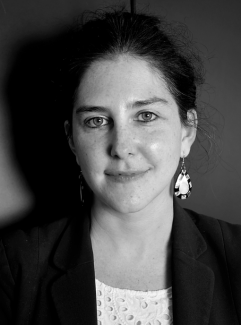“Broken” Franco-German tandem needs Tusk and Trump
As the vital relationship between Franco-German leaders Olaf Scholz and Emmanuel Macron appears “broken”, hopes for a sustainable fix rest on the Weimar Triangle and even the return of an old nemesis.
Relations between the leaders of the EU’s largest members are cooler than ever after a string of thinly veiled barbs were traded over military support for Ukraine during the last few weeks.
A particular bone of contention became visible at the Ukraine conference in Paris, where Macron raised the possibility of sending troops to Ukraine, a proposal firmly rejected by the German Chancellor, who is against sending troops or long-range Taurus missiles.
The subject will be addressed at the Franco-German-Polish Weimar Triangle forum meeting, including Scholz, Macron and Polish Prime Minister Donald Tusk (PO, EPP), on Friday (15 March) in Berlin.
The hope is that Tusk will push the two leaders in the right direction regarding whether they can work together harmoniously.
“Russia’s war against Ukraine has greatly increased the need for agreement between Germany and France on defence matters,” Yann Wernert, a researcher at the Jacques Delors Centre think tank, told Euractiv, adding that “the pressure is high.”
Officials emphasise that relations between both countries remain principally close.
“Beyond the leaders, there are strong connections at different political levels,” said Sabine Thillaye, a Franco-German MP of Macron’s Renaissance party and member of the joint Franco-German parliamentary assembly.
The co-chair of the assembly, Nils Schmid of Scholz’s SPD (S&D), admitted that “different political cultures” can make wrestling for joint positions “appear very tedious in public.” But the two countries were aligned on the fundamentals, he stressed.
[...]
Tusk, Trump, and Weimar
Hofreiter hopes that the “meeting on Friday will provide a fresh start (…) because Europe’s security is at stake”, he told Euractiv.
Regarding a long-term fix, observers on both sides see the Weimar Triangle and Tusk as a third Eastern European actor as key to breaking the Scholz-Macron stalemate and making them focus on the goal of strengthening European security.
[...]
The prospects of that remain dubious.
- “[Scholz’ and Macron’s] style is different,” Marie Krpata, a fellow at the French Institute of International Relations (IFRI), told Euractiv.
While Scholz’s predecessor, Angela Merkel, was praised for her strong multilateral communication, Krpata noted that the French saw Scholz as “taciturn” and sometimes even “hesitant and idle.”
She added that Germany is at odds with Macron’s “disruptive” spirit.
“This is no longer the Merkel era,” a French diplomat summarised in conversation with Euractiv.
> This article is available on Euractiv Website >

Media:
Share





